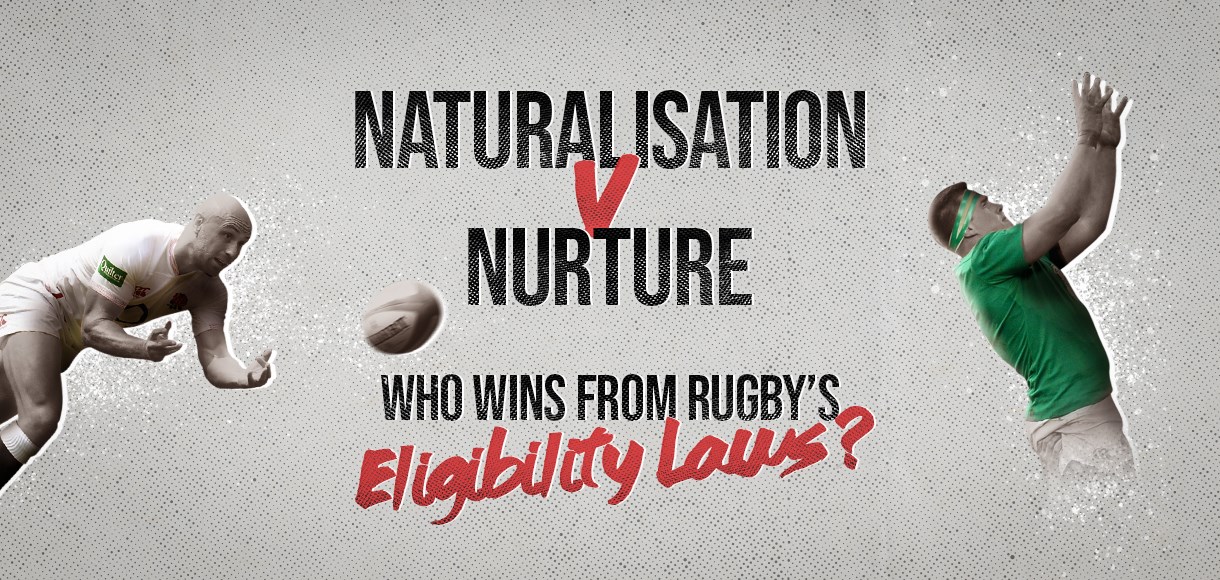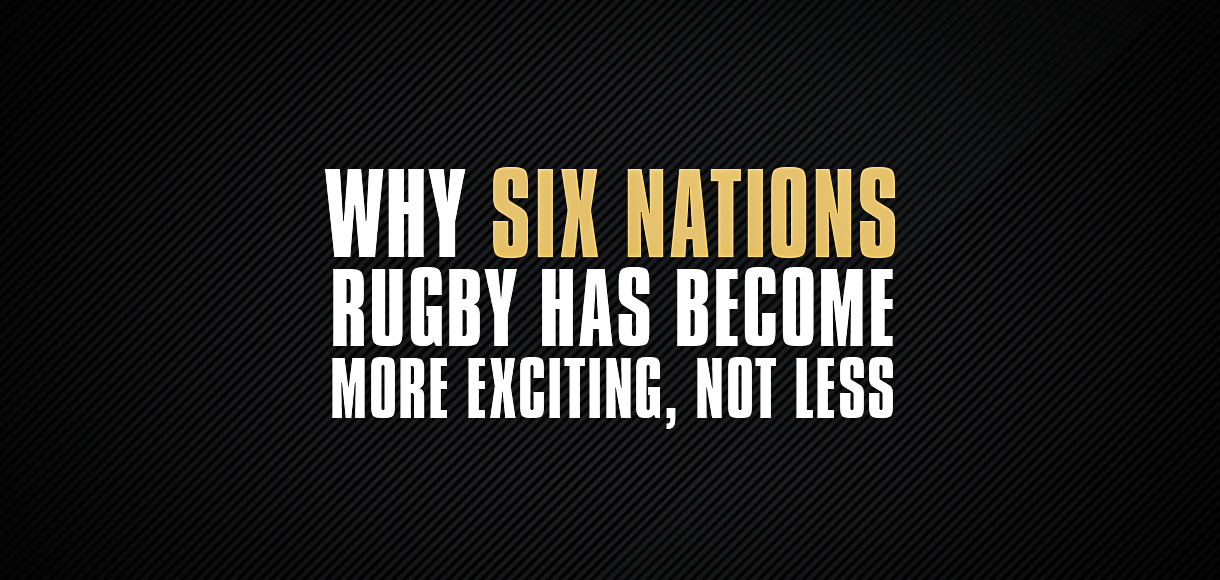Naturalisation v nurture: Who wins from rugby's eligibility laws?

Rugby's lax rules on nationality are creating more controversy than ever, with 134 foreign-born players selected to play at the World Cup in Japan.
The 2019 Rugby World Cup will feature a Scotsman playing for Canada, a Canadian playing for Ireland, an Irishman playing for the USA, an American playing for England, an Englishman playing for Fiji, a Fijian playing for Australia, an Australian playing for Samoa, a Samoan playing for New Zealand and a New Zealander playing for just about everyone.
To the casual fan, that may sound ridiculous, but switching allegiances is, for better or worse, an intrinsic part of international rugby union.
The ease with which players can move abroad, naturalise and begin representing a country to which they had no former ties is a loophole that has been exploited by most rugby-playing nations.
For example, hosts Japan, who are in rugby betting to win the first World Cup on Asian soil, have named 16 foreign-born players in their squad – more than half their allocation – including their New Zealand-born captain Michael Leitch.
World Rugby laws stipulate that players only need to live in a country for three years before they become eligible for the national team.
By contrast, FIFA require footballers to live in a country for at least five years before they can take part in international football, with many associations enforcing additional restrictions on top of that.
Several high-profile omissions from the final squads for this year’s World Cup have brought the issue into even sharper focus this year.
England, who are regularly accused of abusing eligibility laws, have selected scrum-half Willi Heinz, who was born and raised in New Zealand and has just three caps to his name.
Ireland have also been criticised for their decision to leave out 67-cap lock Devin Toner in favour of South African Jean Kleyn, who only qualified to play for them in August.
Things are, however, set to change, with World Rugby bringing their eligibility laws in line with FIFA by increasing the qualification period to five years at the end of 2020.
Driven by vice president Agustin Pichot, this is an attempt to protect smaller nations from losing their best talents while helping all sides maintain their national identity.
How, then, are the new rules set to affect the landscape of international rugby union? And which countries will be most affected by these new regulations?
A look at the makeup of every World Cup squad and the statistics behind naturalisation at the tournament can help us find the answers.

The problem is certainly on the rise, with nine more foreign-born players at this World Cup than the last.
But, with just three of the 20 squads competing in Japan containing no foreign-born players, this is also a deep-rooted issue.
Three countries – Tonga, Samoa and Japan – have more foreign-born players than home-grown. Scotland, the USA and Australia are not far behind.
These are the six nations that, on the face of it, are benefitting most from rugby’s lax eligibility requirements and will, therefore, suffer more than others when the new rules are introduced next year.
Yet things aren’t that simple.
Samoa and Tonga have never been beneficiaries of the system, but rather nations whose talent pools have been drained by Australia and New Zealand.
These Pacific Islanders, along with Fiji, have seen many of their top players poached by the Southern Hemisphere giants over the years, lured by the riches of Super Rugby and the prospect of playing at the very highest level.
They do, admittedly, field many Aussies and Kiwis themselves, but these are players with family ties to the Pacific, and not mercenaries who have qualified through residency.
Players returning to their roots is not a phenomenon limited to rugby, and is not something that will change because of the new laws.
Samoa, Tonga and Fiji should, then, feel the positive effects of the imminent changes by being able to retain their best players over the coming years.
But the same cannot be said for the other four countries in question.
Unfortunately for Japan, the tournament hosts look likely to be hit hardest when the new rules come into play.
Their lucrative Top Rugby competition lures players from around the world, with most of their current foreign contingent qualifying after playing domestically for three years.
Five years is a different prospect entirely, and the Brave Blossoms will have to blood more local talent in the years to come.
This will likely mean an initial dip in performances on the pitch, followed by a slow improvement in the standard of Japanese rugby as youngsters are given more of a chance to flourish.
The USA will be in a similar position, with many of their foreign-born players qualifying during university stints or by playing in their burgeoning Major League Rugby competition.
Scotland and Australia, meanwhile, may lose out on a couple of potential ‘project players’ – those from abroad earmarked for naturalisation – but their relative riches should shield them from any real loss of depth after 2020.
That should be the case for the other top-tier nations, who will have enough domestic talent to make up for any loss of talent from abroad.
So, will the new rules have the desired effect? In a word, yes.
Bigger nations will be forced to use their own resources rather than poach from elsewhere, while smaller countries will become more competitive as they retain their best talent.
Players will be rewarded for their loyalty, not cast aside for a quick-fix foreigner, and the identity of every national team will slowly grow stronger.
In truth, these changes should have come years ago, with naturalisation allowed to become embedded in the fabric of the game, almost like an international transfer market.
But this is certainly a step in the right direction, and one that will see international rugby evolve into a more authentic, competitive beast.
Visit Betway's rugby betting page.





































